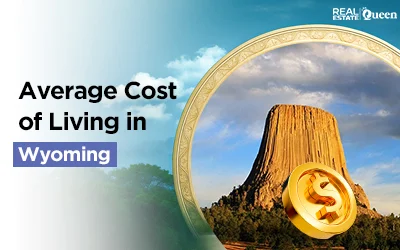
In 2025, Nevada’s housing market presents a unique opportunity for home buyers. Homes sold with a price drop have increased 18.53% Y.O.Y., creating a more balanced market.
This guide provides a detailed plan for buying a home in Nevada, navigating its challenges while leveraging its benefits.
Key Takeaways
- Step 1: Figure out your finances and budget.
- Step 2: Get pre-approved for a mortgage.
- Step 3: Find your dream home in Nevada.
- Step 4: Make a competitive offer.
- Step 5 Complete due diligence with inspections.
- Step 6 Secure financing and insurance.
- Step 7 Prepare for and close your purchase.
Current Nevada Housing Market Overview (2025)
The Nevada housing market takes a shift in 2025. Buyers have more leverage with the selling of homes sold below the price list, with an increase of 23.16% Y.OY. and 22.5% inventory growth.
The median home sale price has reached $466,700, with a 6.22% decrease in the average number of homes sold.
How to Buy a Home in Nevada: 7 Steps
Step 1: Figure Out Your Finances
Before searching for homes for sale in Nevada, set a clear budget. The state’s cost of living requires careful financial planning beyond typical home-buying expenses.
Nevada’s average property tax rate is about 0.60%, among the lowest in the nation. Homeowners should also plan for insurance costs, which can rise in wildfire-prone areas, plus closing costs of roughly 1.5% of the purchase price.
These expenses, combined with 30-year mortgage rates averaging 6.28% in 2025, shape overall affordability.
Get Your Down Payment Ready
In Nevada, FHA loans generally require a minimum credit score of around 640, while conventional loans usually need at least 620.
Down payment requirements range from 3.5% to 20% depending on the loan type, with private mortgage insurance required under 20%.
Nevada also offers programs like Home Is Possible, the Housing Bond Program, and the Silver State Down Payment Assistance Program to support first-time buyers.
Get Pre-Approved for a Mortgage
Buyers in Nevada should prepare documents such as proof of income, tax returns, bank statements, employment verification, and credit history to get pre-approved.
A pre-approval letter strengthens your offer in the state’s competitive market, and since the process can take several weeks, it’s best to start early.
Step 2: Find Your Dream Home in Nevada
With a set budget, you can find your dream home faster. Houzeo, Nevada’s best home buying website, allows you to browse through the latest listings with smart filters for price, ZIP code, schools, etc.
Whether you are looking for homes for sale in Las Vegas, Reno, or Henderson, the best place to buy in Nevada depends on your priorities:
- Las Vegas: Average home price around $430,000 with a wide range of amenities and community options.
- Reno: Higher-priced market at about $540,000, offering strong demand and lifestyle appeal.
- Henderson: Median price near $460,000, with many neighborhoods featuring HOA fees between $150 and $400 monthly.
Step 3: Make an Offer That Wins
Nevada buyers typically put down earnest money deposits of 1–2% of the purchase price. Offers should include contingencies for financing approval and inspections within 7 to 10 days. With homes selling in about 30 to 35 days, the market allows for negotiation, but acting quickly remains important.
Step 4: The Crucial Due Diligence Period
In Nevada, buyers typically have 7 to 10 days to complete inspections. A general home inspection, lasting 2 to 4 hours, is the standard first step. Common additional inspections include termite, foundation, roof, and sewer camera checks to ensure the property is structurally sound and safe.
Step 5: Secure Your Financing and Insurance
Lenders order an appraisal with a typical turnaround of 7 to 10 days, followed by final loan underwriting that averages 5 to 7 days. Homeowners must carry standard insurance, though premiums vary in wildfire-prone areas. Earthquake insurance is not required but is recommended for added protection.
Step 6: Prepare for Closing Day
In Nevada, closing costs usually average about 1.5% of the purchase price. Buyers should expect expenses such as loan fees, title insurance, escrow charges, taxes, and recording fees.
State law also requires a three-business-day review of the Closing Disclosure before signing, followed by a final walk-through to confirm the property’s condition.
Step 7: Welcome Home!
Nevada provides key benefits for homeowners. Property tax exemptions are available for groups such as surviving spouses and disabled veterans. The absence of state income tax also supports affordability, though buyers should stay mindful of HOA rules and fees that may apply after purchase.
Tips for Nevada Homebuyers: Do’s and Don’ts
Do’s
- Get your finances prepped and pre-approval early.
- Use a Nevada-licensed real estate agent experienced in your target area.
- Attend multiple showings to compare value and conditions.
- Prioritize specialized inspections common in Nevada.
- Consider first-time buyer assistance programs to reduce upfront costs.
Don’ts
- Don’t skip the home inspection, especially termite and foundation checks.
- Don’t delay assembling financial documents for mortgage approval.
- Don’t underestimate closing costs and monthly HOA fees.
- Don’t ignore local market trends by city or county.
- Don’t assume all insurance policies cover wildfire or earthquake damage.
Conclusion
Nevada’s 2025 housing market offers opportunities across major cities like Las Vegas, Reno, and Henderson. With median prices around $448,000 and a balanced market, buyers have room to explore options.
Careful preparation, state down payment programs, and thorough inspections can simplify the process. Begin early, work with experienced professionals, and move forward with confidence. Your Nevada home awaits.
Frequently Asked Questions
How long does it take to buy a house in Nevada?
It typically takes 30 to 45 days from contract signing to closing, though timing can vary with market factors and financing speed.
➡️Read more to know more about preparation for the closing day
What credit score do I need to buy a house in Nevada in 2025?
The minimum credit score for FHA loans usually requires a minimum credit score of 640, while conventional loans expect 620 or higher.
How can I find my dream home in Nevada?
Find your home in Nevada, depending on your priorities, whether it’s Las Vegas at $430,000 with ample amenities, Reno at $540,000 with strong demand, or Henderson at $460,000 with HOA fees from $150 to $400.





